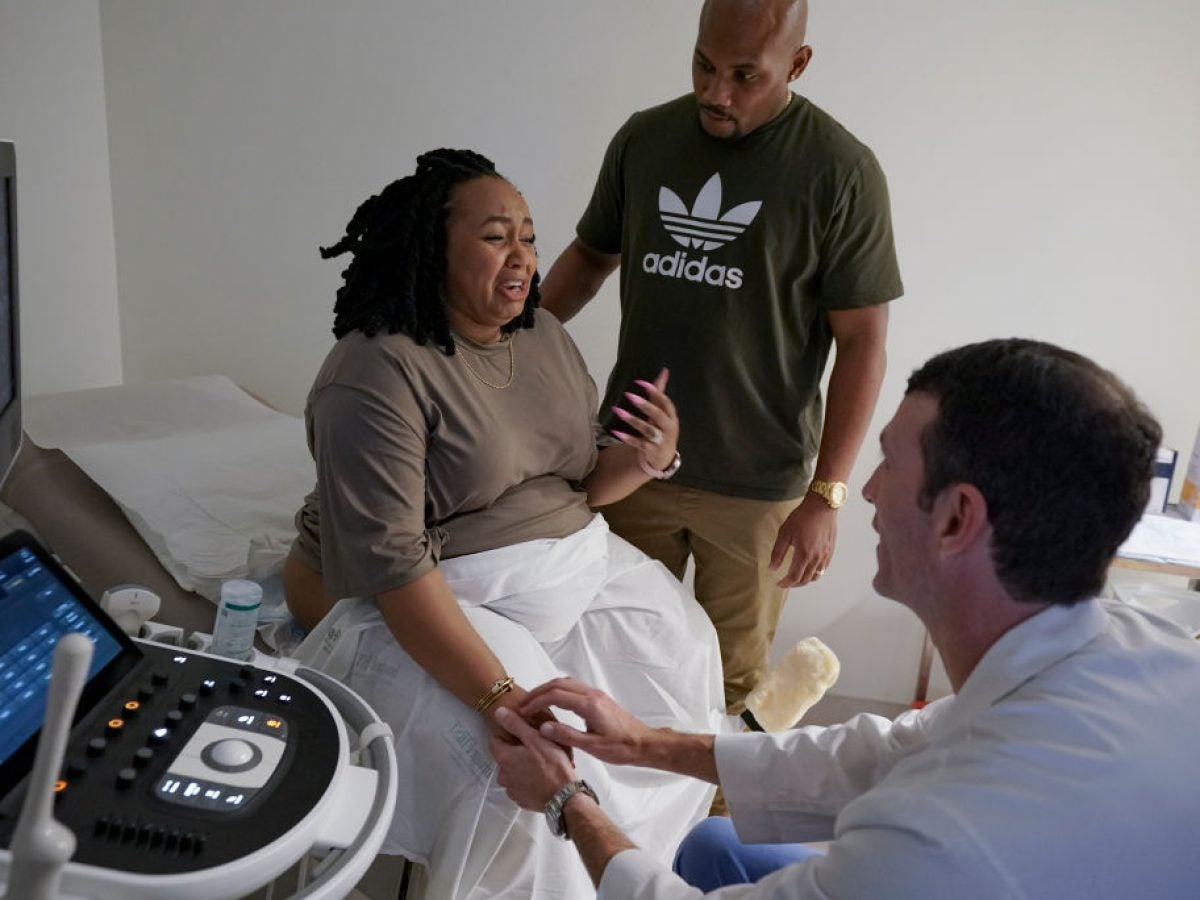
After a slew of miscarriages, Anya Cook had finally allowed herself to get excited about her pregnancy at the 15-week mark. She even had a name planned out for her daughter—Bunny. Cook’s hopes, however, were dashed after she realized her water had broken prematurely while leaving dinner at nearly 16-weeks.
Cook rushed to the emergency room, but when she was finally seen by a doctor, she was told that “because of the state’s abortion law, he could not induce labor.” She was essentially told to leave, offered antibiotics, and a nurse told her that she “promised to pray for her.”
The next day Cook would go on to pass her fetus in a public bathroom and almost end up dying in the operating room from losing too much blood.
In a gut-wrenching account of these events, the Washington Post lays out Cook’s story, which devastatingly isn’t an isolated event in today’s post-overturning of Roe v. Wade world. The Post also lays out how Cook’s friend Shanae Smith-Cunningham was also denied care for the same condition the next day.
That condition is pre-viability preterm prelabor rupture of the membranes, more colloquially known as PPROM, which is “when a pregnant mother’s water breaks before viability.”
The 15-week abortion limit in Florida has been in effect since last July—with an exception to save the protect the mother’s physical health and life. As written, “the text of the law says that the exception applies whenever two physicians certify in their reasonable medical judgment that terminating a pregnancy is necessary to save the life of the pregnant woman or to ‘avert a serious risk’ of ‘substantial and irreversible physical impairment of a major bodily function of the pregnant woman other than a psychological condition.’”
Strangely enough, PPROM does not fall under this exemption.
According to pro-life obstetrician-gynecologist Dr. Ingrid Skop, based out of Texas, who spoke with NATIONAL REVIEW, “it’s very, very hard to predict who’s going to get sick really fast,” with PPROM. Skop doubled down on this aspect, “I say this as a pro-life physician: It is appropriate to deliver at that point. Because we know that likelihood that four days, six days [later], she’s going to be clinically infected. We know that the likelihood this child was going to make it to be born alive, to stay alive, not die in the neonatal period, is super low.”
Despite the overwhelming evidence, former Republican state senator Kelli Stargel still insists that there does not need to be any carve-outs for PPROM, stating “The bottom line is we value life, and we would like to protect life…We don’t want to give a gaping exception that anyone can claim.”
Even with these setbacks, both Cook and Smith-Cunningham are still determined to become mothers and plan to start trying to become pregnant once more but worry about what will happen if even more strict laws are passed.
As Cook said, “Getting pregnant now feels like a death sentence,” with Smith-Cunningham adding “They are playing with people’s lives with this law,” and with the abortion ban at six-weeks now “hurtl[ing] forward [through the legislature], it appears DeSantis is happy to let his constituents die, nearly die, or suffer greatly simply for the sake of his presidential ambitions.”